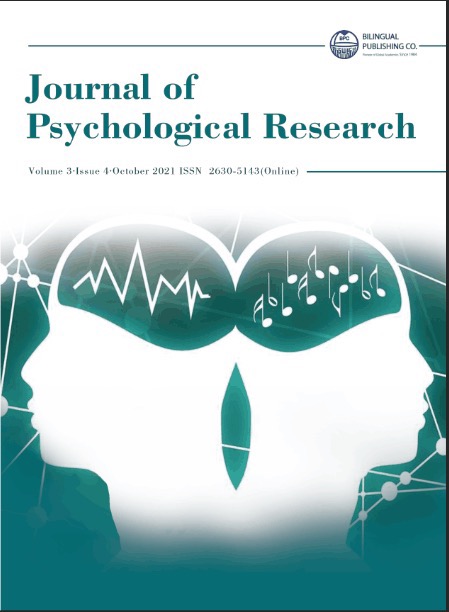-
1519
-
1339
-
1322
-
1320
-
1195
The Mindset of Innovation: Contributions of Cognitive and Social Psychology
DOI:
https://doi.org/10.30564/jpr.v3i4.3480Abstract
In order to consider anything as new, individuals have to accept it aspossible. To consider it as innovative, a person has to see it as necessary.These two concepts, derived from Piaget's theory (1987), are key elementsfor the analysis of innovation mindset. Theoretical framework explainshow “opening up for new possibilities” implies overcoming pseudoimpossibilities, and how possibilities are built up alongside individualdevelopment. In short, an innovation has to be considered possible andnecessary, feasible and viable. Thus, the cognitive processes involvedin defining what is possible, and accepting what doesn't have to be theold way, are crucial mental structures subjacent to innovations’ decisionmaking. This study examines mindset through mental models, cognitiveprocesses and executive functions, as well as Piaget and Gestalt theory'scontributions. The empirical investigation involved a search for articlespublished on the theme between 2019 and 2021, concluding that they applythe innovation mindset definition, taking for granted the psychologicalmechanisms inlayed in it. The article also points up to the gap betweenmanagement and psychology, indicating the urgent need of interdisciplinarystudies, due to the mutual benefits for both sciences and also, bettercomprehension of the constructs.Keywords:
Mindset, Possibilities, Necessities, Creativity, Executive functions, InnovationReferences
[1] Sidhu, I., Goubet, J. E., & Xia, Y. (2016, June). Measurement of Innovation Mindset A Method and Tool within the Berkeley Innovation Index Framework. In 2016 International Conference on Engineering, Technology and Innovation/IEEE lnternational Technology Management Conference (ICE/ITMC) (pp. 1-10). IEEE.
[2] Gomezel, A. S., & Rangus, K. (2018). An exploration of an entrepreneur’s open innovation mindset in an emerging country. Management Decision.
[3] IDEO https://designthinking.ideo.com/. Access in June, 2021.
[4] Sloman, Aaaron (2014). Discussion of some themes in Piaget's two books on Possibility and Necessity. Available in http://www.cs.bham.ac.uk/research/projects/cogaff/misc/piaget-possibility-necessity.html. Access in June 21, 2021.
[5] Piaget, Jean, et al., Possibility and Necessity (1987) Vol 1 and 2. The role of possibility in cognitive development, University of Minnesota Press, Translated by Helga Feider from French in 1987 (Original 1981).
[6] Turchielo, L. B., & Aragón, R. (2018). A formação do professor reflexivo em um curso à distância. Florianópolis: Perspectiva, 36, (2), 701-723. Disponível em http://hdl.handle.net/10183/186266.
[7] Diamond, A. (2013). Executive functions. Annual review of psychology, 64, 135-168.
[8] Baumeister, R. F., Schmeichel, B. J., & Vohs, K. D. (2007). Self-regulation and the executive function: The self as controlling agent. Social psychology: Handbook of basic principles, 2, 516-539.
[9] Bandura, A. (1982). Self-efficacy mechanism in human agency. American psychologist, 37(2), 122.
[10] Rotter, J. B. (1966). Generalized expectancies for internal versus external control of reinforcement. Psychological monographs: General and applied, 80(1), 1.
[11] Johnson-Laird, P. N. Mental Models. Cambridge: Harvard University Press, 1983.
[12] Johnson-Laird, P. N. (2001). Mental models and deduction. Trends in cognitive sciences, 5(10), 434-442.
[13] Besnard, D., Greathead, D., & Baxter, G. (2004). When mental models go wrong: co-occurrences in dynamic, critical systems. International Journal of Human Computer Studies, 60(1), 117-128.
[14] Britannic Encyclopedia, 1985.
[15] Koffka, K., & Cabral, Á. (1975). Princípios de psicologia da Gestalt. São Paulo: Cultrix.
[16] Kohler, W. (1980). Psicologia da gestalt. Belo Horizonte: Itatiaia.
[17] Wertheimer, M., & Wertheimer, M. (1959). Productive thinking (Vol. 18). New York: Harper.
[18] Perini, R. S. M. (2015) Apprendistato e formazione psicosociale: un’esperienza di conduzione di moduli di socializzazione e competenze relazionali per apprendisti artigiani. RASSEGNA CNOS, 91. Available at: https://www.researchgate.net/publication/314102095_Apprendistato_e_formazione_psicosociale_un'esperienza_di_conduzione_di_moduli_di_socializzazione_e_competenze_relazionali_per_apprendisti_artigiani/citations.
[19] Salerno, M. S., & Gomes, L. A. V. (2018). Gestão da inovação radical. Rio de Janeiro: Elsevier.
[20] Tomasello, M., & Call, J. (1997). Primate cognition. Oxford University Press.
[21] Eason, C. C., & Mazzei, M. J. (2019). Teaching and Doing Strategy as an Intentional Strategic Innovation Mindset. Journal of Strategic Innovation and Sustainability, 14(4), 26-43.
[22] Harsono, A. A., & Fitri, S. (2020). Innovation mindset: SMES vs startups. International Journal of Business and Economy, 2(2), 54-61.
[23] McLaughlin, L. A., & McLaughlin, J. (2021). Framing the Innovation Mindset. Issues in Informing Science and Information Technology, 18, 083-102.
[24] Muhamad, M. S. (2019). Open management and role in developing the innovation mindset of managers. Al-Mansour Journal, (31).
[25] Engelsberger, A., Halvorsen, B., Cavanagh, J., & Bartram, T. (2021). Human resources management and open innovation: the role of open innovation mindset. Journal of Strategic Innovation and Sustainability, 14(4), 26-43.
[26] Fitri, S., & Pertiwi, (2019). A. Innovation mindset model at the early stage startup with Berkeley innovation index approached. Technology Management, 4(13), 57-70.
[27] Sahasranamam, S. (2020, May). How coronavirus sparked a wave of innovation in India In World Economic Forum.
[28] Nunes, A. C. B., & Canavilhas, J. (2020). Journalism innovation and its influences in the future of news: a European perspective around Google DNI Fund initiatives. In Journalistic Metamorphosis (pp. 41-56). Springer, Cham.
[29] Muftahu, M., & Jamil, H. (2021). Sustainable knowledge flow and innovation in higher education: the implementation of change management in universities. International Journal of Innovation and Sustainable Development, 15(2), 159-168.
[30] Urze, P., Rosas, J., Tenera, A., & Camarinha-Matos, L. M. (2019, September). Open Innovation Practitioners Mindset on Risk. In Working Conference on Virtual Enterprises (pp. 103-114). Springer, Cham.
Downloads
How to Cite
Issue
Article Type
License
Copyright © 2021 LISETE BARLACH

This is an open access article under the Creative Commons Attribution-NonCommercial 4.0 International (CC BY-NC 4.0) License.




 LISETE BARLACH
LISETE BARLACH






